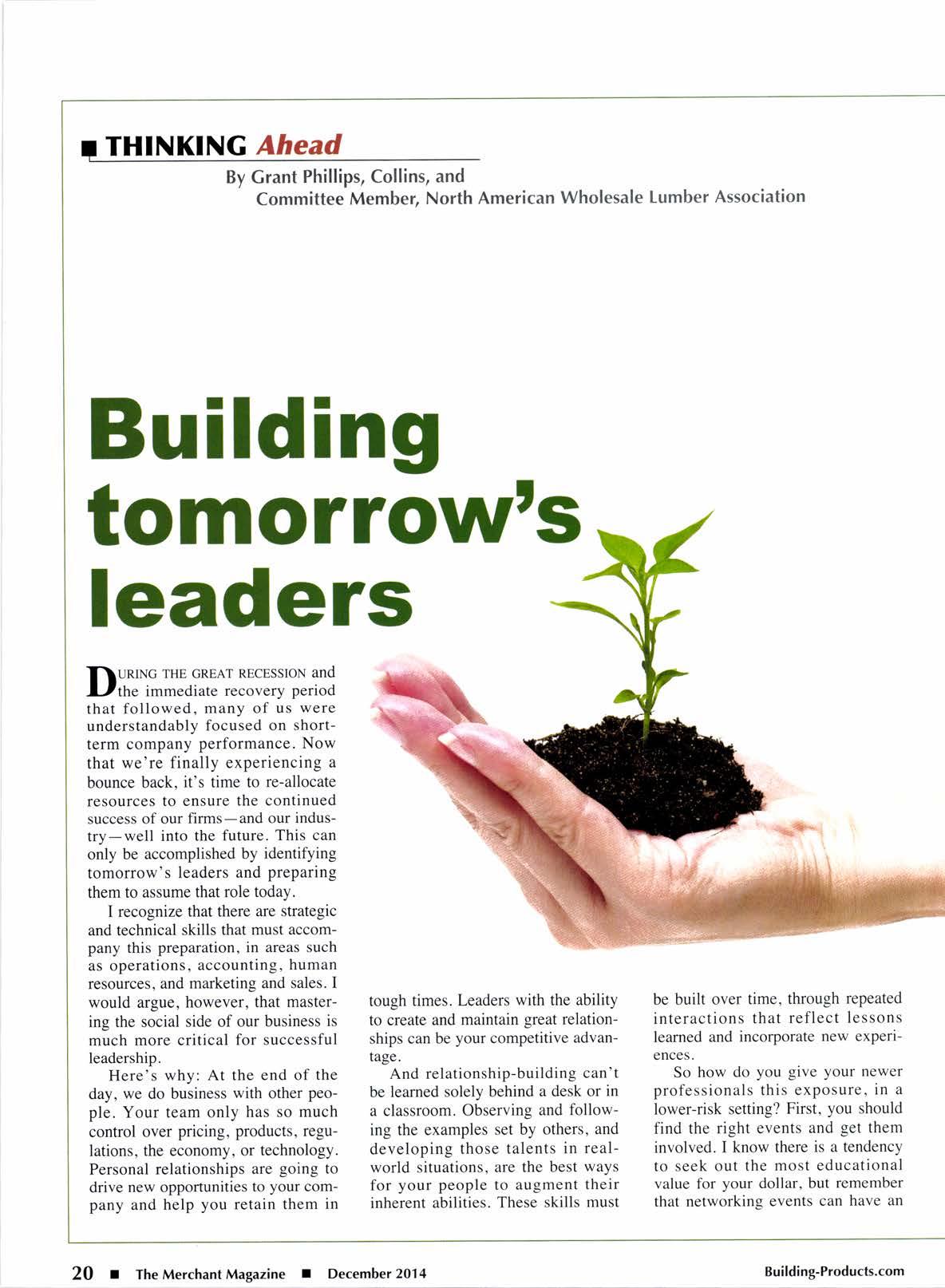
2 minute read
Building tomorrowts leaders
huntNc rHE GREAT nscsssroN and Lf the immediate recovery period that followed, many of us were understandably focused on shortterm company performance. Now that we're finally experiencing a bounce back, it's time to re-allocate resources to ensure the continued success of our firms-and our industry-well into the future. This can only be accomplished by identifying tomorrow's leaders and preparing them to assume that role today.
I recognize that there are strategic and technical skills that must accompany this preparation, in areas such as operations, accounting, human resources, and marketing and sales. I would argue, however, that mastering the social side of our business is much more critical for successful leadership.
Here's why: At the end of the day, we do business with other people. Your team only has so much control over pricing, products, regulations, the economy, or technology. Personal relationships are going to drive new opportunities to your company and help you retain them in tough times. Leaders with the ability to create and maintain great relationships can be your competitive advantage.
And relationship-building can't be learned solely behind a desk or in a classroom. Observing and following the examples set by others, and developing those talents in realworld situations, are the best ways for your people to augment their inherent abilities. These skills must be built over time, through repeated interactions that reflect lessons learned and incorporate new experiences.
So how do you give your newer professionals this exposure. in a lower-risk setting? First, you should find the right events and get them involved. I know there is a tendency to seek out the most educational value for your dollar, but remember that networking events can have an equally significant impact over time. To help tomorrow's leaders get the most out of the experience, there should be the opportunity to both meet peers and observe more seasoned professionals. Peers they connect with now will be the colleagues they turn to for years to come, and the veterans will model the best ways to make and foster those connections.
Events such as the upcoming NAWLA Leadership Summit, March 22-24 in Scottsdale, Az., provide the perfect blend of networking and relevant education for current leaders and mid-level managers who will be the next to fill those roles. With receptions, breaks, shared meals, roundtable discussions, and traditional presentations from experts in lumber manufacturing, distribution and transportation, the event offers a great first look into the challenges leaders face and relationships they use to overcome them.
Associations like NAWLA can also provide year-round leadership development opportunities that benefit your junior staffers, the organization and the industry as a whole. Volunteer committee service provides an introduction to peers of all experience levels from different companies and regions, and the chance to showcase talents, innovative thinking and commitment to industry service.
The variety and scope of volunteer projects can be much different than what your junior staffers encounter at your firm each day. The opportunity to direct the work of others, especially those outside of their organizations, builds people and project management competencies while expanding professional networks for










